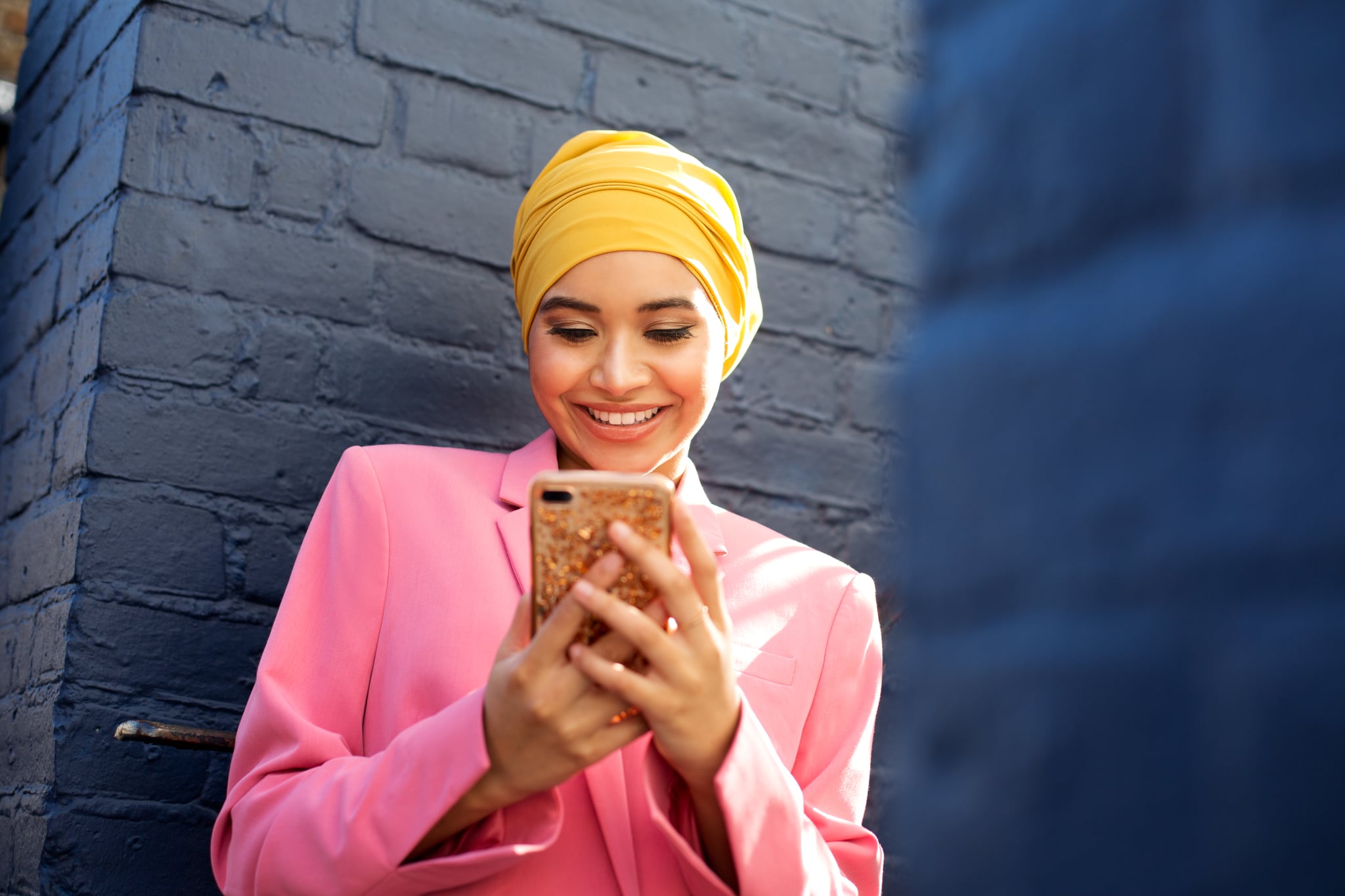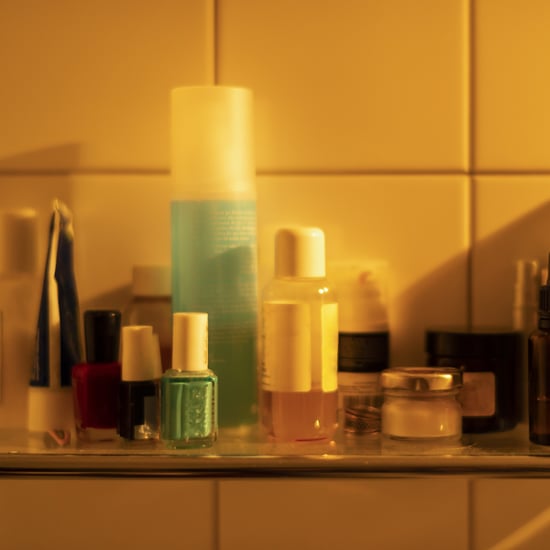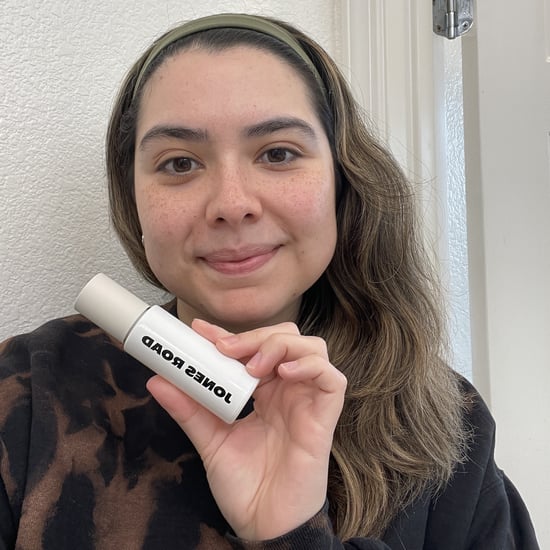Skin Care on TikTok: The Experts Debunking Misinformation
Skin Care on TikTok: Meet the Derms and Cosmetic Chemists on a Mission to Stop Misinformation

Image Source: Getty / Lilly Roadstones
"This soap bar will cure your acne." "Vaseline can melt blackheads." "This breakfast will make your skin glow." If you've spent any time on TikTok, then you've probably come across at least one of these pieces of beauty advice before. Routines, hacks, and tips are flying around the platform at the same speed as viral dance challenges, with no sources or scientific evidence to support them. It's not uncommon to see people with zero science or skin-care credentials giving definitive advice on "good" and "bad" products based on an ingredient list (often demonising safe ingredients) or diagnosing skin conditions. On TikTok, everyone has become a skin-care expert, and sadly, the majority of their information is incorrect.
Combatting this misinformation are a group of dermatologists, cosmetic chemists, and qualified skin experts working overtime on their own social platforms hoping to impart their wisdom, debunk the myths, and cut the beauty bullsh*t flooding our social media feeds. Their content is backed up by years of experience, science, and trustworthy studies. They're here to demystify the industry (one dermatologist we spoke to even has the Instagram handle "dermatology demystified"), one aesthetically pleasing graphic and entertaining dance routine at a time.
So, let's get learning about how you can tell true from false, the role of skinfluencers, and how the trajectory of product formulations is changing as a direct result of TikTok.
The Difference Between Science-Backed Information and Personal Testimonials
The lack of sources and professional training and the prevalence of someone's personal biases can get lost in viral skin-care posts. "The thing to remember about personal testimonials on social media is that they do not necessarily represent scientific evidence," said London-based dermatologist Dr Cristina Psomadakis, who is currently completing a master's in skin-ageing and aesthetics. "People can be motivated to post something like an unusual 'skin hack' to gain likes and follows. Once a trend goes viral, it becomes less about its factual accuracy and more about replicating and participating in the moment."
"The dusty patient information leaflets we have in-clinic have value, but they can't reach the same number of people in a fun, digestible way," Dr Psomadakis said.
One part of the dilemma is the lack of factual information supporting attention-grabbing content, but another issue is that many people think they're sharing evidence-based content. "To me, the bigger problem is that a lot of creators believe what they're saying is science-based, when it isn't, and the more confident someone is, the more believable they can seem, even if it's completely rubbish," said Michelle Wong, Sydney-based science educator and content creator. Dr Beibei Du-Harpur, a dermatologist based in London, echoed this: "Unfortunately, people cherry-pick data and misinterpret it, knowing that a minuscule minority will ever check," she explained. "Even well-meaning individuals can accidentally make or share information that isn't quite right."
It's not just a beauty-industry issue, either. TikTok has been battling an increase of misinformation on the platform on all types of subjects, including major world events like the US election, prompting the app to launch warnings on content to help tackle the issue. "In my perspective, I have seen more misinformation on TikTok compared to Instagram," said US-based cosmetic chemist Esther Olu, which may be due, in part, to TikTok's one-and-done content when compared with the more curated side of Instagram. Wong thinks that regardless, monitoring content could go a step further with "more regulation around these sorts of content shared on social media and around marketing."
Putting Beauty Journals Into Layman's Terms
Let's be real: scientific papers, journals, and articles are often pretty difficult for us regular folks to digest and understand (yes, even for us beauty editors). And that's where the science buffs come in, taking to social media to provide evidence-based beauty information in an entertaining and accessible way.
"When learning about cosmetic chemistry, I initially had a hard time digesting what I read. I love all things beauty and wanted to translate that to Instagram but in an easy-to-learn way," Olu said. "A lot of consumers are very intrigued by the beauty industry, however, a lot of scientific articles are hard to understand and cannot easily be translated to the everyday consumer." And that's exactly why Olu and the other experts created their channels. "I created my platform for consumers to learn the basics, the advanced, and the in-between," she said. "While training in dermatology and doing a master's in skin aesthetics, I started to realise a lot of information was incorrect or interpreted incorrectly," Dr Psomadakis explained. "I felt I had an obligation to have a voice and a space in social media."
To add to that, the world of beauty and the skin specifically is extensive. These skin-care debunking content creators actively work together to flood social media feeds with credible information that's presented in an interesting way. "People are consuming information differently; the dusty patient information leaflets we have in-clinic have value, but they can't reach the same number of people in a fun, digestible way," Dr Psomadakis said. "People are hungry for accurate information but may not always have access to it. By being present and interacting with content creators from all backgrounds, I feel like the overall body of information online can be improved," Dr Du-Harpur added.
Where Do Skinfluencers Fit Into All of This Misinformation Malarky?
Amongst the experts we spoke to, they all said they value the presence of "skinfluencers" (skin influencers) on social media, as long as they're open to advocate experts and evidence-based information, that is. "I personally love skinfluencers! I believe they are an integral part of the beauty industry, and they bring something refreshing in the midst of all this information," Olu said. Dr Psomadakis agreed, saying that "there are many that are absolutely fantastic — the important thing is for them to be aware of their limitations."
"Simply having a large following does not necessarily mean someone should be trusted," Dr Psomadakis said.
Plus, skinfluencers play a role that dermatologists and chemists cannot. "I test products, but nowhere near the amount of products as people who review them as a full-time job," Dr Psomadakis said. "My strengths are knowing about skin conditions and treatments, and I can't always keep up with trends or product launches in the industry, so I get a lot of valuable information from skinfluencers for that," she added. "Many skinfluencers have supported professional skin experts on social media and are open to learning from each other; James Welsh, for example, has a great balance of sharing what he knows while also lifting up cosmetic chemists, dermatologists, and aestheticians," Dr Psomadakis added.
Dr Du-Harpur makes an excellent point that information overload can be an issue when it comes to influencers in the beauty industry, especially within the skin-care space. "Content creation (like any form of news) must remain new and exciting in order to maintain the audience's interest; however, the actual information regarding what is necessary for skin is actually pretty simple and has probably been shared already," she said. "This means that excitement must be generated about relatively trivial things, or things without as good a scientific base; this means that audiences lose sight of what is important, become confused and more likely to purchase unnecessary products."
How the Skin-Care TikTok Boom Is Changing In-Clinic, Dermatologist Appointments
It was only a matter of time before the information, hacks, and tips shared on TikTok and Instagram made their way into dermatologists' offices. "More and more during consultations, I'm having to explore where [patients] get their information from, what skin-care accounts they follow, and what their skin-care routine is so I can get an idea of what's going on," Dr Psomadakis said. She explained that patients say they've tried "absolutely everything" for their acne but list only viral products and hacks, without a single medical treatment.
"Where I get concerned is when people offer up diagnosis or treatment suggestions for people who have medical skin conditions. There are over 2,000 conditions in dermatology, and to the untrained eye, a lot might look like common conditions such as acne or rosacea," Dr Psomadakis said. "I'd tell people to think carefully about suggesting diagnoses and treatments if they are not qualified to do so; the best advice is to tell someone to see a doctor first." Dr Du-Harpur agreed, saying, "The skin, and the treatment of skin, is rooted in science, and science is never as straightforward or as simple as could be captured by an Instagram infographic or a 15-second video," particularly when it comes to diagnosis.
Misinformation Could Be Leading the Way With Cosmetic Formulations
Large beauty brands create what consumers want, simple as that. If consumers aren't clued up about certain products and have collectively deemed some ingredients as "bad", then formulations change because brands want to exclude them. Some might argue the trajectory of product formulations are changing as a direct result of misinformation shared on social media platforms. Case in point: the increasingly common selling point of a product being paraben-, SLS-, and fragrance-free, which have been deemed not "clean" or "safe" by some brands and consumers.
"The phasing out of parabens due to misinformation has led to an increase in products containing methylisothiazolinone, for example, which causes a lot more irritation and allergic reactions," Wong said.
"This changing of formulas is very common and is now becoming more prevalent with current and upcoming brands," Olu said. "It is an unsurprising trend where brands see others using 'free-from' claims, demonising single ingredients, and then follow suit without doing any research on the ingredients in question and if they are actually a problem," she added. "If they do research, they use extremely outdated information; it is disingenuous."
Though, as Wong pointed out, this consistent change in formulas has always happened to an extent. "A lot of decisions about what goes into a product are based on marketing reasons rather than product performance reasons. Market sentiment definitely overrules science when it comes to brand decisions, and unfortunately, that means that misinformation can lead to products that are worse," she explained. "The phasing out of parabens due to misinformation has led to an increase in products containing methylisothiazolinone, for example, which causes a lot more irritation and allergic reactions."
How Can Consumers Make Sense of Skin-Care Fact and Fiction?
If deciphering between true and false when it comes to skin care on social media is so tricky, how should we decide what to believe? Sources, sources, and more sources, the experts said. "When you consume any type of information, you have to ask yourself three key things: what qualifications does someone have, what are their motivations, and what evidence does this person have for saying this? Simply having a large following does not necessarily mean someone should be trusted," Dr Psomadakis said. "Don't be afraid to ask questions. Ask where they get their sources from and try to analyse them, if you can," Olu recommended. In addition to this, "guidelines (versus scientific papers) can be more useful because they are created by a group of experts who have evaluated and interpreted raw scientific data and made pragmatic recommendations using the data," Dr Du-Harpur said.
"I think one reasonably accurate rule of thumb is to look at what reputable experts from a variety of relevant fields are saying, and if the majority of them agree on something, it's probably true," Wong said. "It's also good to look at the sources they're relying on for particular recommendations."
"The skin, and the treatment of skin, is rooted in science, and science is never as straightforward or as simple as could be captured by an Instagram infographic or a 15-second video," Dr Du-Harpur said.
Another thing to keep in mind is that the field of dermatology and skin care is all about nuances. "Question very absolute statements, and show appreciation for the nuance and complexity of skin science and skin-care science," Dr Du-Harpur said. Most aspects of the skin-care industry can be misconstrued to fit an agenda or a marketing campaign, catchy TikTok post, or Instagram graphic.
Although the experts were in agreement that such misinformation on TikTok and Instagram can be frustrating, disheartening, and overwhelming at times, they also strongly believe that together, they can outweigh and dispel many of the myths out there. "It's spurring a lot of experts to actively engage in debunking misinformation," Wong said.






